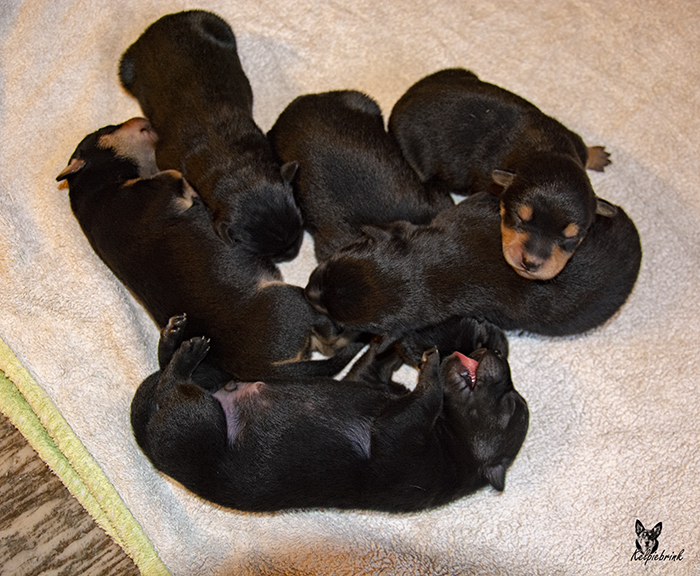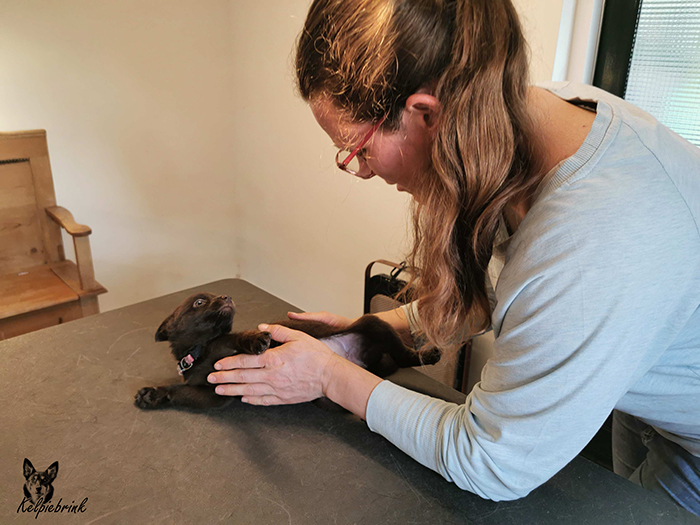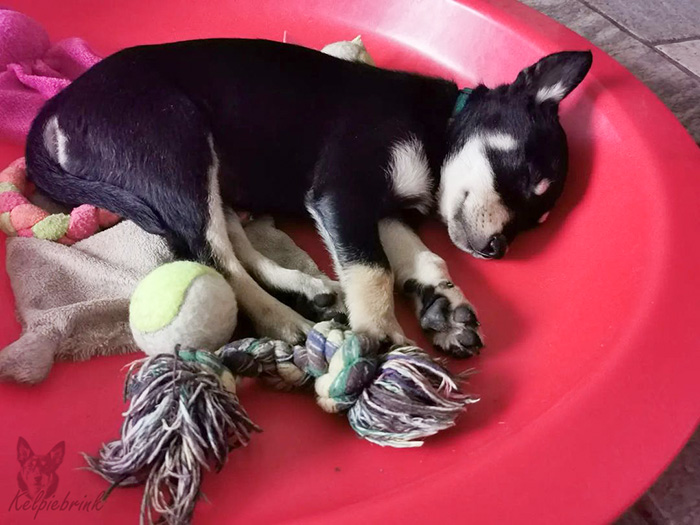We are members of the breed association Australian Kelpie Association.
We therefore breed in accordance with the Association’s Breeding Regulations. You can find these on the website of the Australian Kelpie Association.
Our own dogs are tested for HD, ED and abnormalities of the back, heart and eyes.
The puppies are born and raised in the house. From birth onwards, they get used to normal house noises like the hoover, coffee machine, dishwasher and so on.
We always have lots of visitors so they are used to people (of all ages).
Puppies are checked and vaccinated by the vet at 6 weeks! (Pups get antibodies against diseases through their mother’s milk. When these antibodies disappear, the pup has to build up its own resistance. A vaccination ensures the production of antibodies against the disease being vaccinated against). When they are picked up later, they also get the 9 and 12-week vaccination.

.The moment puppies can have solid food, we give them fresh meat. The last 1 or 2 weeks before they leave, they also get dry food (kibble). This is given through play, for example in a kong, sniffing mat, feeding ball and the like.

It is important to us that our dogs are well socialised.
This starts very early on. We have good experience with Early Neurotical Stimulation. This is a method developed by the US Army that has had good results.
We have been using this method for years.

So during their time here, they learn to deal not only with different stimuli but also with different people (big/small, male/female, old/young).
We introduce them to different surfaces, take them into the forest, into the village. Introduce them to different breeds of dogs. Take them to the market, to water et cetera.




What we also think is important is that the puppies are checked by an osteopath. Due to the birth and play between them, things can get fixed. If you don’t do something about it in time, the pup can suffer from it later in life.




Your puppy can be picked up at 8 weeks. Until then, puppies learn a lot, especially in the final weeks. Learning dog language is important and they learn this from their interaction with their mother, littermates and family. And also from other dogs they get to know.
Sometimes mothers get tired of it by then although our experience is that they still regularly check if all is well with the puppies.




